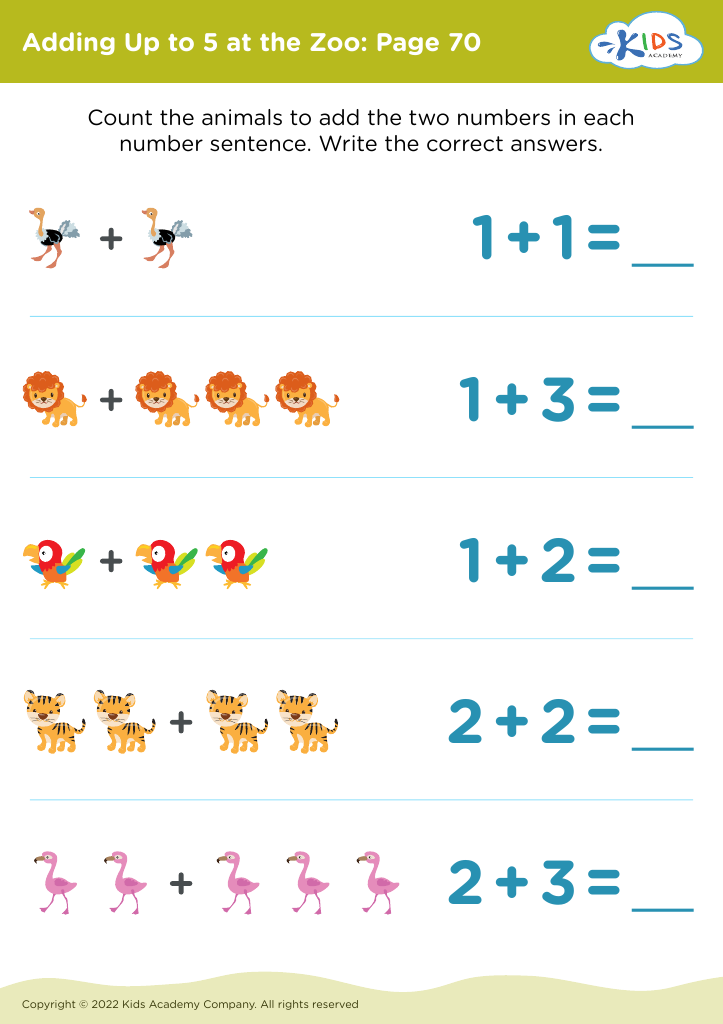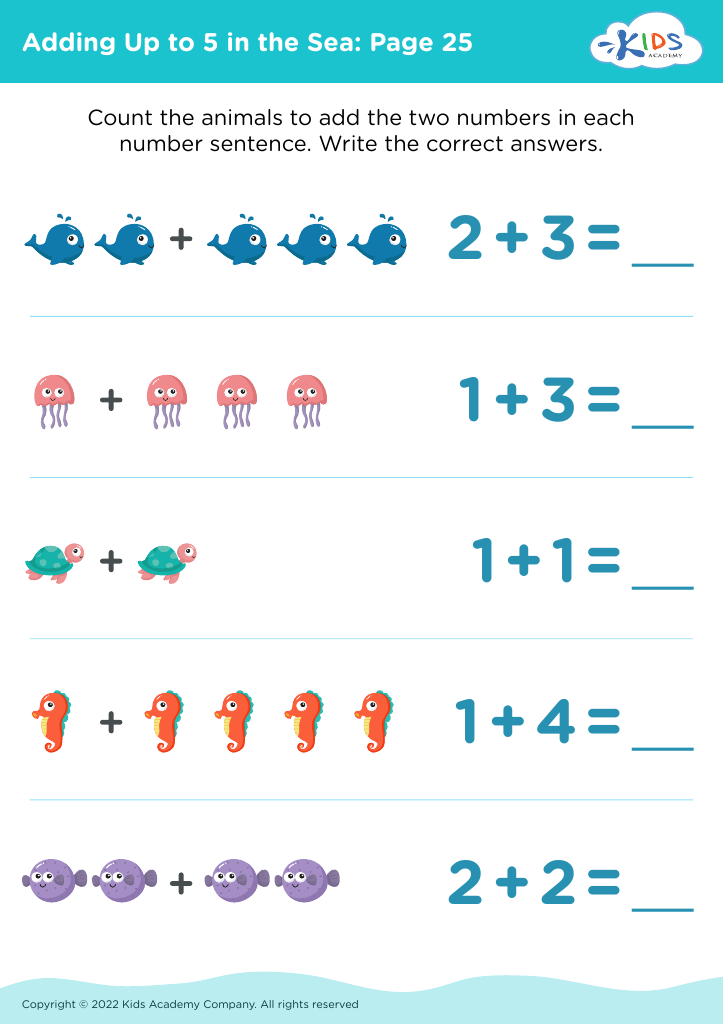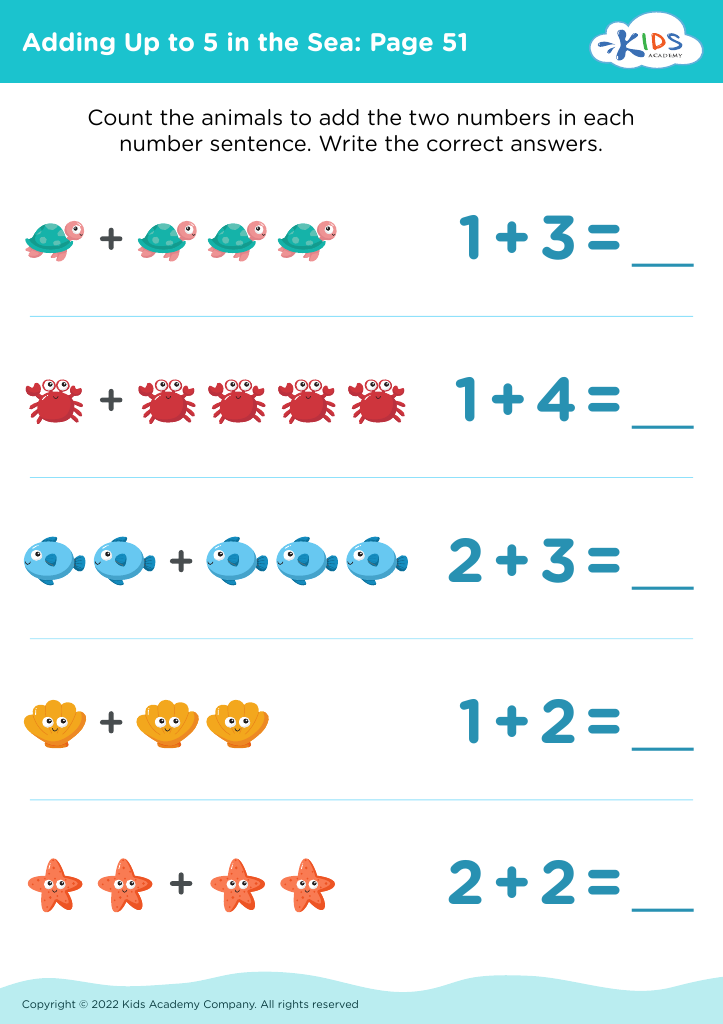Understanding number relationships Adding Up to 5 Worksheets for Ages 3-9
3 filtered results
-
From - To
Unlock the joy of learning with our "Understanding Number Relationships: Adding Up to 5" worksheets, designed for children ages 3-9. These engaging activities from Kids Academy foster essential math skills, helping young learners grasp the concept of number relationships. Through a variety of fun exercises, kids practice adding up to 5, building a solid foundation for future math success. Perfect for early childhood education, these worksheets blend learning with play, making math enjoyable and accessible. Download today and watch your child’s confidence soar as they master these vital early math concepts!
Understanding number relationships that add up to 5 is fundamental for young children aged 3-9 because it lays the groundwork for their numerical and mathematical development. This comprehension is crucial as it transitions them from simple counting to complex arithmetic.
Firstly, mastering number relationships up to 5 helps children develop basic addition skills. Recognizing that 2 and 3 make 5 or that 1 and 4 also make 5 promotes mental math abilities and efficiency. This understanding fosters flexibility in thinking, allowing children to approach problem-solving from different angles.
Secondly, such basic number sense nurtures pattern recognition. Children start to see consistent relationships and can extend these patterns to larger numbers. This conceptual clarity forms a strong foundation for future mathematic concepts like multiplication and division.
Additionally, competency in this area boosts children's confidence. When they grasp that numbers can combine in different ways yet result in the same sum, their mathematical self-esteem rises, and they feel encouraged to explore further challenges.
Moreover, these early successes contribute to a positive attitude toward mathematics as a whole. A strong foundation makes subsequent learning progressively more manageable, paving the way for academic success.
Overall, parents and teachers should prioritize understanding number relationships as it anchors children's lifelong learning in mathematics, fostering confidence, critical thinking, and problem-solving skills essential for everyday life and academic growth.








.jpg)














